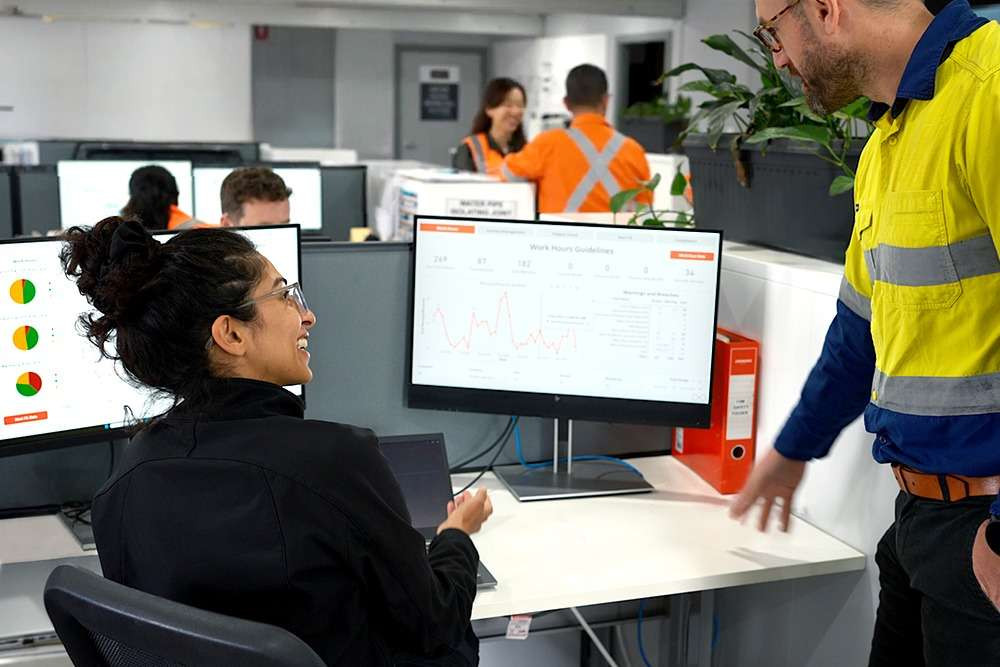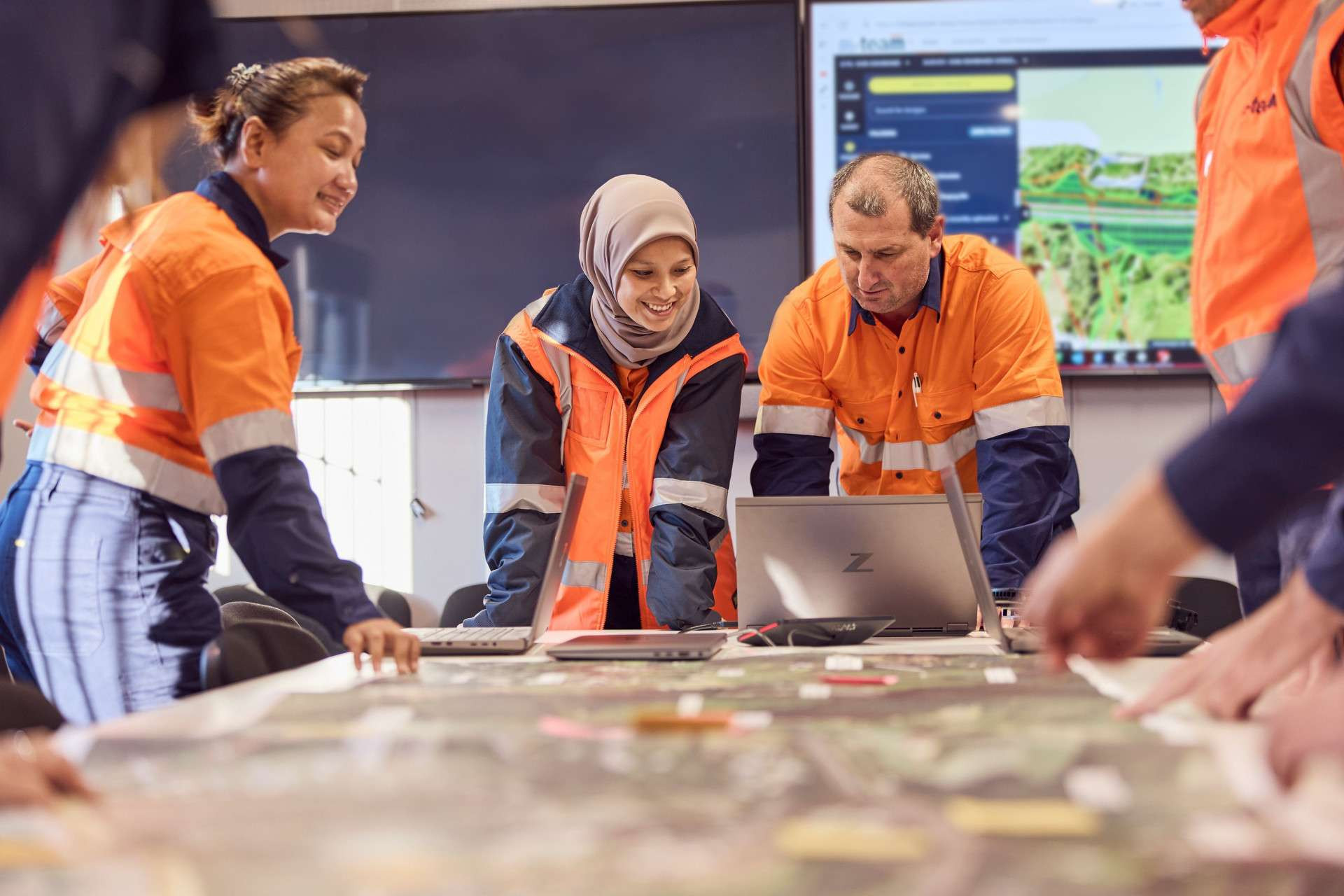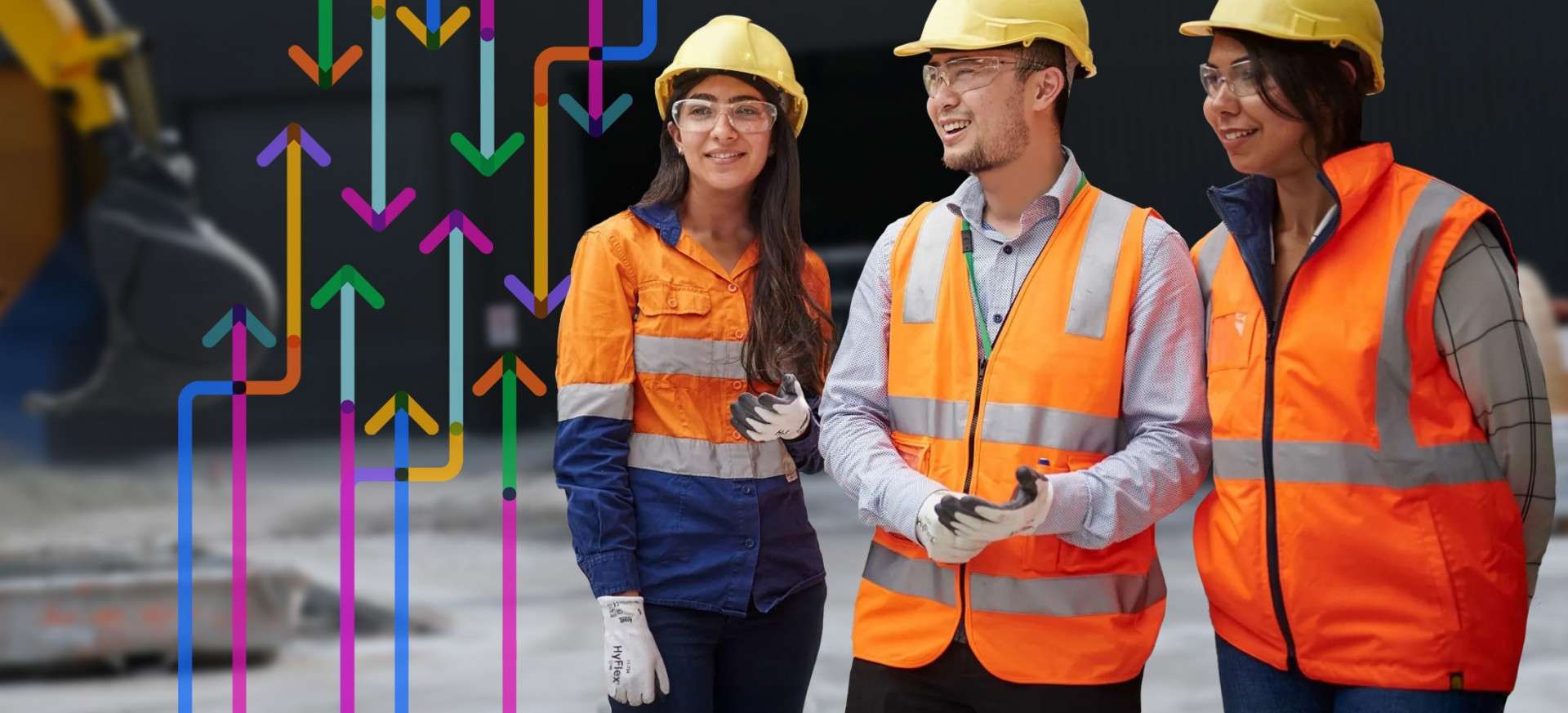Creating a Shift Change
Construction is one of the most exciting and rewarding sectors to work in today.
In an industry built on movement, it's time we look inward at the people driving the change not just the infrastructure they create.
This year at Transport we want to have a conversation that challenges us all to rethink the ways we work together.
We want to work with our industry partners and workforce representatives to drive a Shift Change on our projects - to help our people perform at their best.
Streamlined workforce requirements now launched

We have now released our streamlined approach to skills, diversity and culture on our projects.
Thank you to everyone who joined our Shift Change webinar and submitted feedback. Your insights helped us shape the updated requirements document.
You can find the streamlined requirements documents below, and if you want some more background you can watch a recording of the webinar discussion below.
What are we looking to change together with industry?
Tendering for success

We are developing a streamlined Workforce Requirements Document to make it easier than ever for our project partners to tender and deliver meaningful results.
Embedding the right culture

We want to work with industry to co-design the best way to embed more flexible ways of working across different project types within the portfolio.
Flexibility and inclusion

We are working in partnership with industry on a range of initiatives to help shape a more productive and inclusive construction sector that is well placed to attract and retain talent to deliver great projects for the people of NSW.
What we are delivering to drive the change we need to see
We are working in partnership with industry on a range of initiatives to help shape a more productive and inclusive construction sector that is well placed to attract and retain talent to deliver great projects for the people of NSW.

Culture Standard
We are committed to partnering with industry to build a strong and diverse workforce. This includes adopting the principles of the Culture in Construction Taskforce’s (CICT) Culture Standard across our portfolio.

National Construction Strategy
Transport is working with Infrastructure NSW and other States and Territories, the Commonwealth and industry to develop the National Construction Strategy.

Reporting unacceptable behaviour
No one should ever feel unsafe or be the subject to unreasonable or unlawful behaviour on a construction site. Together The Department of Transport and Main Roads, Queensland (TMR) and the Victorian Infrastructure Delivery Authority (VIDA) we have developed the Notification of Unacceptable Behaviours Guide.

Project culture and Health tool
Born out of our Industry Affairs Program, this tool surveys both Transport and our delivery partners to gain a snapshot of a project's health and culture trends, from development to delivery, by surveying projects on a regular basis.
Infrastructure Skills Legacy Program
The Infrastructure Skills Legacy Program (ISLP) is a NSW Government initiative aimed at boosting the number of skilled construction workers and increasing diversity in the construction industry. We are committed to transparently sharing our ISLP results. You can find our latest achievements (Q2 2025) against the ISLP targets below. You can find the full fact sheet here.
|
Targets
|
ISLP target
|
Infrastructure,
Projects &
Engineering
overall
achievement
|
Average
across
Regional NSW
|
Average
across
Greater Sydney
|
|---|---|---|---|---|
|
Apprentices
|
20%
|
27%
|
31%
|
24%
|
|
Women in trades
|
2% |
5%
|
5%
|
5%
|
|
Young people under 25 years
|
8%
|
15%
|
15%
|
16%
|
|
Learning worker
|
20%
|
11%
|
13%
|
10%
|
|
Local people
|
As per contract*
|
54%
|
51%
|
56%
|
*Reporting is on employment outcomes for people from the local region (as defined by Transport in the contract)
How we are addressing workforce challenges with industry
In 2023, the Mulgoa Road Stage 1 project became one of the first infrastructure projects in the country to run a pilot of the CICT's new Culture Standard.
Transport for NSW, in partnership with Seymour Whyte and Turnbull Engineering is delivering the Mulgoa Road Stage 1 project with all partners committed to implementing the Culture Standard.
The pilot tested if projects can achieve measurable improvements in workforce culture through flexible and capped working hours, and by encouraging initiatives to improve workers' wellbeing and increase female participation.
An interim Report led by RMIT University on early pilots of the Culture Standard found that there was overwhelming support for a five-day work week, with 84% of salaried respondents and 61% of waged respondents preferring this schedule.
Transport for NSW and Fulton Hogan cut travel in half and improved workforce travel fatigue for over 90% of on-site staff who were driving up to 1000kms to get to site.
To address local workforce limitations, the project required staff from outside the region resulting in staff travelling long distances to work on-site. This created potential safety, fatigue and wellbeing risks. To address this, Transport and Fulton Hogan implemented a 10-days on, 4-off rostering system, which halved travel time and increased productivity.
Transport for NSW and John Holland have run several successful programs on the project to improve diversity and participation.
The project ran the Women in Construction Pre-employment Program, which was designed to navigate some of the traditional barriers to participation by women and was run in conjunction with a “Late Start” pilot program aimed at attracting people who previously haven’t considered a career in construction because of the hours.
Around 400 women applied for the four-week program which set out the foundational skills needed for a lifelong career in the construction industry.
The program saw 11 graduates signing on to a one-year Civil Construction Apprenticeship with John Holland.
Transport and delivery partner Stephen Edwards Construction successfully delivered essential infrastructure while exceeding diversity and skills development targets.
The project is a great example of strong partnerships, early workforce planning, and targeted community engagement building a diverse local workforce.
The Project exceeded its workforce diversity target, achieving 20% at project completion by engaging 152 workers from underrepresented groups. This included people from non-English speaking backgrounds, returned service persons, the long-term unemployed, LGBTQIA+ community members, and people with disabilities, aligning with the defined target for disadvantaged, disabled or underrepresented groups.
In addition, this project also exceeded its requirement for women working in non-traditional roles, achieving 6% against a 2% target.







